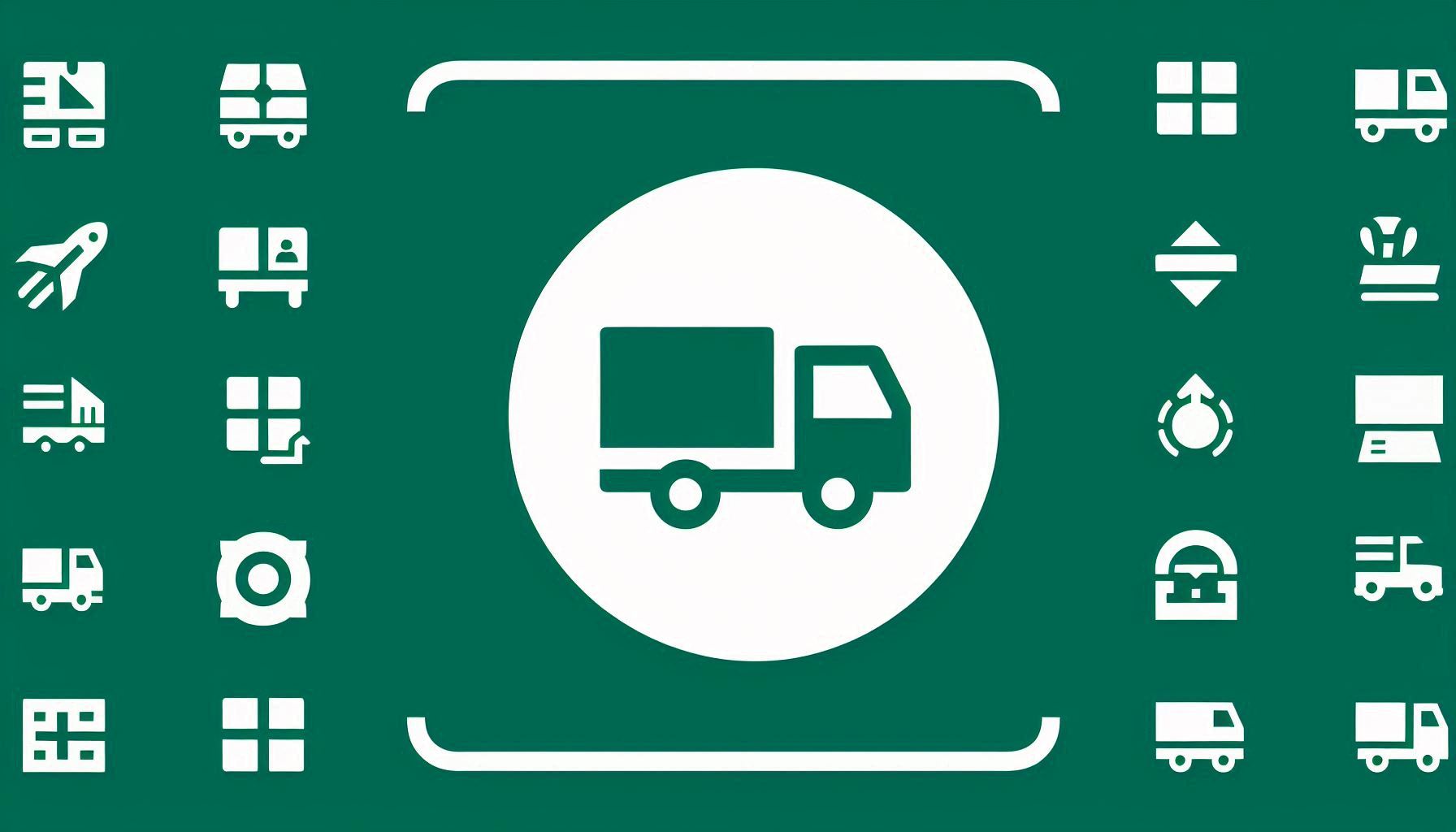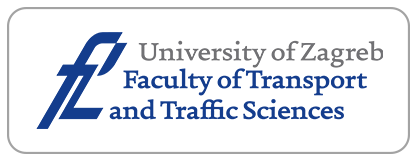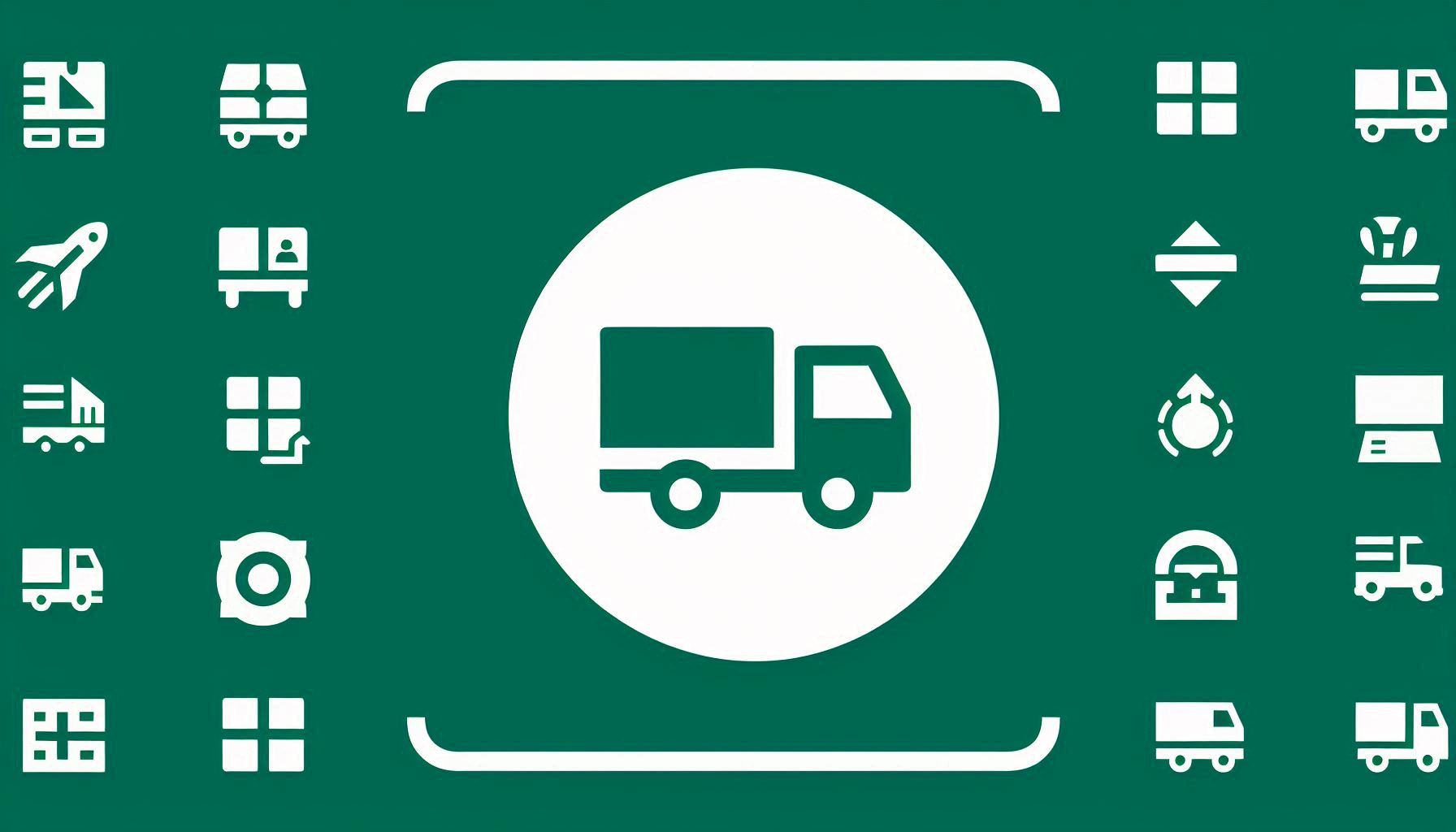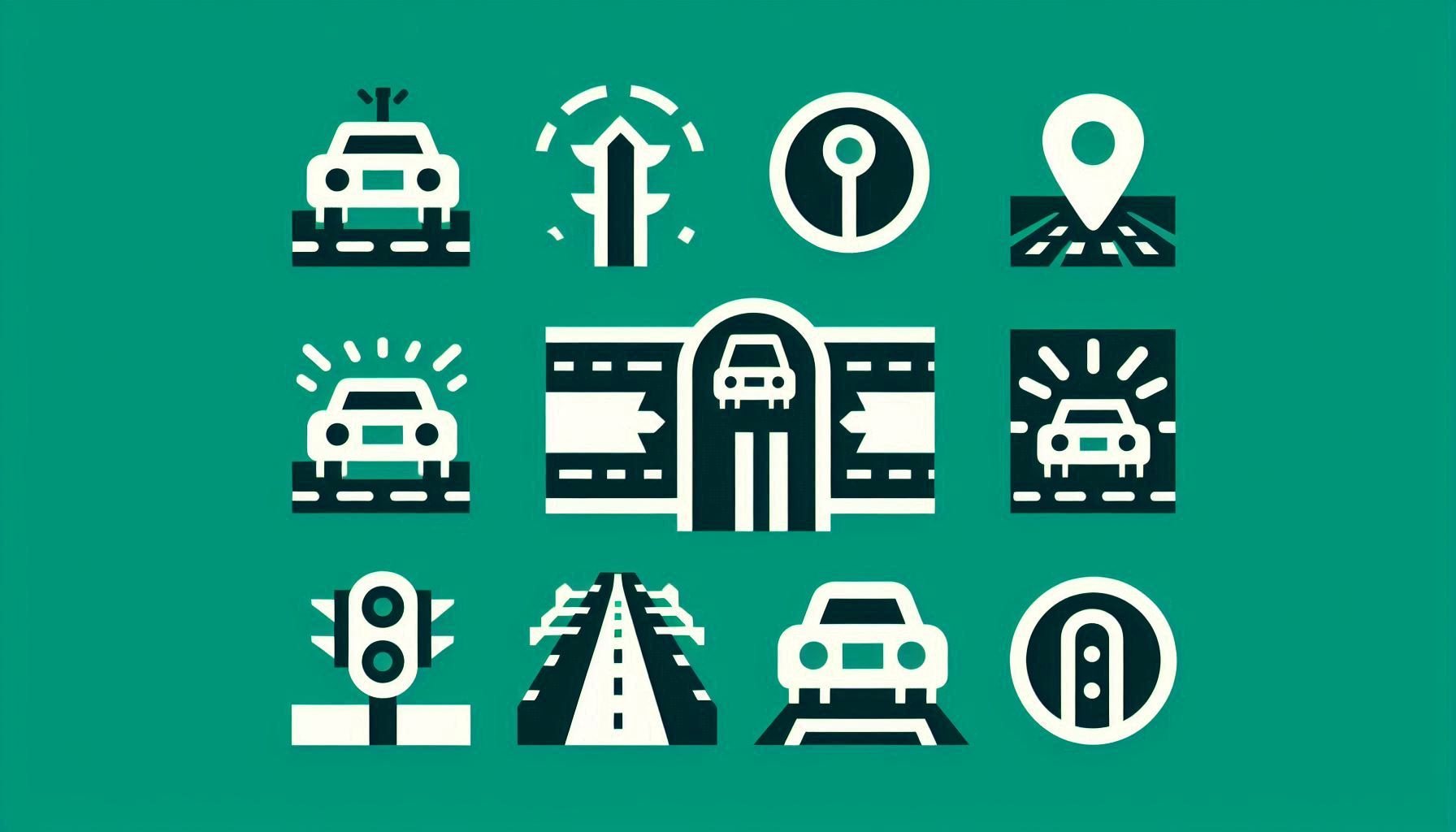Multi-Objective Optimisation of Container with Food Cold Chain Using Multimodal Transport under Uncertainties in Network Structure and Ad-Hoc Situations

Downloads
With the increasing security of food supply chains, ensuring the optimal transportation of perishable goods has become crucial. Various options and modes of transportation offer significant advantages in terms of efficiency, cost-effectiveness and environmental sustainability. However, the uncertainty associated with network structure and unforeseen events would pose unique challenges for optimising the food cold chain container routing. This research aims to develop a multi-objective optimisation model for the container-based food cold chain transportation system. Considering the random failure of the network nodes scenario, a container with a cold chain multimodal routing optimisation model was constructed. The optimisation goal is to minimise transportation costs, carbon emission costs and total transportation time. The research adopted a mixed-integer optimisation model by linearisation technology. Gurobi was used to solve the problem. The model and solution were then verified by the empirical data. The findings uncover the new influence of the node failure on the multimodal route design, as well as different parameters on the cost of multimodal routes for better decision-making. The research contributes to the development of more resilient and efficient food cold chain transportation systems through the new conditions of five constraints in the proposed model, which is capable of adapting to uncertainties in network structure and ad-hoc situations.
Downloads
AJ D, et al. Service innovation of cold chain logistics service providers: A multiple-case study in China - ScienceDirect. Industrial Marketing Management. 2020;89:143-156. DOI: 10.1016/j.indmarman.2019.08.002.
Jing C, Yong Z, Lei L .Vulnerability analysis of multimodal transport networks based on complex network theory.Journal of Southeast University (English Edition). 2021;37(2). DOI: 10.3969/j.issn.1003-7985.2021.02.011.
Zhang W, et al. Low-carbon efficiency analysis of rail-water multimodal transport based on cross efficiency network DEA approach. Energy. 2024;305(000):14. DOI: 10.1016/j.energy.2024.132348.
Zhang W, Wu X, Shi J .Cross efficiency model of network DEA and its application on low carbon efficiency evaluation of multimodal transport. Ocean & coastal management. 2023;244:1:1-12. DOI: 10.1016/j.ocecoaman.2023.106778.
Yin C, et al.Transition of multimodal transport network under different carbon price scenarios. Transport Policy. 2025.
Somsai T, Pongcharoen P, Hicks C .Optimizing sustainable multimodal distribution networks in the context of carbon pricing, with a case study in the Thai sugar industry.Energy, 2024, 298. DOI: 10.1016/j.energy.2024.131273.
Boura G, Ferguson NS .Incorporating geographic interdependencies into the resilience assessment of multimodal public transport networks. Journal of Transport Geography. 2024;118. DOI: 10.1016/j.jtrangeo.2024.103934.
Guo J, et al.Research on risk propagation method of multimodal transport network under uncertainty. Physica A: Statistical Mechanics and its Applications. 2021;563. DOI: 10.1016/j.physa.2020.125494.
Wang B, Su Q, Chin KS.Vulnerability assessment of China–Europe Railway Express multimodal transport network under cascading failures. Physica A: Statistical Mechanics and its Applications. 2021;584. DOI: 10.1016/j.physa.2021.126359.
Chen L, Miller-Hooks E. Resilience: An indicator of recovery capability in intermodal freight transport. Transportation Science. 2012;46(1):109-123. DOI: 10.1287/trsc.1110.0376.
Sharifi E, Amin SH, Fang L. Designing a sustainable, resilient, and responsive wheat supply chain under mixed uncertainty: A multi-objective approach. Journal of cleaner production. 2024;434. DOI: 10.1016/j.jclepro.2023.140076.
Zhao S, Jiang M, Kuang H, Wan M. Decision-making optimization for post-disaster restoration of multimodal transport networks in terms of resilience. Journal of Transport & Health. 2024;39:101928. DOI: 10.1016/j.jth.2024.101928.
Zhang H, Huang Q, Ma, L, Zhang Z. Sparrow search algorithm with adaptive t distribution for multi-objective low-carbon multimodal transportation planning problem with fuzzy demand and fuzzy time. Expert Systems with Applications. 2024;238:122042. DOI: 10.1016/j.eswa.2023.122042.
Bortolini M, et al.Fresh food sustainable distribution: Cost, delivery time and carbon footprint three-objective optimization. Journal of Food Engineering. 2016;174:56-67. DOI: 10.1016/j.jfoodeng.2015.11.014.
Sun Y, et al. A fuzzy programming method for modeling demand uncertainty in the capacitated road–rail multimodal routing problem with time windows. Symmetry. 2019;11(1). DOI: 10.3390/sym11010091.
Yan S, et al. A time-dependent fuzzy programming approach for the green multimodal routing problem with rail service capacity uncertainty and road traffic congestion. Complexity. 2018;1-22. DOI: 10.1155/2018/8645793.
Bauer J, Bektaş T, Crainic TG. Minimizing greenhouse gas emissions in intermodal freight transport: An application to rail service design. Journal of the Operational Research Society. 2010;61(3):530-542. DOI: 10.1057/jors.2009.102.
Jiang J, et al.Regional multimodal logistics network design considering demand uncertainty and CO2 emission reduction target: A system optimization approach. Journal of Cleaner Production. 2020;248:119304. DOI: 10.1016/j.jclepro.2019.119304.
Agamez A, Annydel M, Moyano Fuentes J. Intermodal transport in freight distribution: A literature review. Transport Reviews. 2017;37(6):782–807. DOI: 10.1080/01441647.2017.1297868.
Resat HG, Turkay M. A bi-objective model for design and analysis of sustainable intermodal transportation systems: A case study of Turkey. International Journal of Production Research. 2019;57(19):6146–6161. DOI: 10.1080/00207543.2019.1587187.
Wang Z, et al. Power system cascading risk assessment based on complex network theory. Physica A: Statistical Mechanics and its Applications. 2017;482:532–543. DOI: 10.1016/j.physa.2017.04.031.
Wang Y, Xiao R. An ant colony based resilience approach to cascading failures in cluster supply network. Physica A: Statistical Mechanics and its Applications. 2016;462:150–166. DOI: 10.1016/j.physa.2016.06.058.
Crucitti P, Latora V, Porta S. Centrality measures in spatial networks of urban streets. Phys Rev E Stat Nonlin Soft Matter Phys. 2006;73. DOI: 10.1103/PhysRevE.73.036125.
Shiguang W, et al. The improved degree of urban road traffic network: A case study of Xiamen, China. Physica A Statistical Mechanics & Its Applications. 2017;469:256-264. DOI: 10.1016/j.physa.2016.11.090.
Bellingeri M, et al. Efficacy of local attack strategies on the Beijing road complex weighted network. Physica A: Statistical Mechanics and its Applications. 2018;510:316–328. DOI: 10.1016/j.physa.2018.06.127.
Porta S, Crucitti P, Latora V. The network analysis of urban streets: A dual approach. Physica A: Statistical Mechanics and its Applications. 2006;369(2):853–866. DOI: 10.1016/j.physa.2005.12.063.
Ding JF, Weng JH, Chou CC. Assessment of key risk factors in the cold chain logistics operations of container carriers using best worst method. International Journal of Refrigeration. 2023;153. DOI: 10.1016/j.ijrefrig.2023.06.013.
Tong S, et al. A phase change material (PCM) based passively cooled container for integrated road-rail cold chain transportation – An experimental study. Applied Thermal Engineering. 2021;195: 117204. DOI: 10.1016/j.applthermaleng.2021.117204.
Moon S. The emergence of new containers in cold chain. Technology in Supply Chain Management and Logistics: Current Practice and Future Applications. 2019;127.
Chen Z, et al. Subsidy policy optimization of multimodal transport on emission reduction considering carrier pricing game and shipping resilience: A case study of shanghai port. Ocean & Coastal Management. 2023;243:106760. DOI: 10.1016/j.ocecoaman.2023.106760.
Xu H, Liu J, Qi S, Hayashi Y. Incentive policy for rail-water multimodal transport: Subsidizing price or constructing dry port? Transport Policy. 2024;150:219-243. DOI: 10.1016/j.tranpol.2024.03.007.
Ding X, Jian S. Revenue sharing and resource allocation for cooperative multimodal transport systems. Transportation Research Part C: Emerging Technologies. 2024;164. DOI: 10.1016/j.trc.2024.104666.
Dini N, Yaghoubi S, Bahrami, H. Route selection of periodic multimodal transport for logistics company: An optimisation approach. Research in Transportation Business & Management. 2024;54. DOI: 10.1016/j.rtbm.2024.101123.
Rossi T, et al. A new logistics model for increasing economic sustainability of perishable food supply chains through intermodal transportation. International Journal of Logistics Research and Applications. 2021;24(4):346–363. DOI: 10.1080/13675567.2020.1758047.
Guo F, Xu Y, Huang Z, Wu Y. Collaborative optimization of routing and storage strategy of multi-period multimodal transport in an uncertain environment. Computers &Operations Research. 2024;167:106676. DOI: 10.1016/j.cor.2024.106676.
Dong JX, Lee CY, Song DP. Joint service capacity planning and dynamic container routing in shipping network with uncertain demands. Transportation Research Part B: Methodological. 2015;78:404-421. DOI: 10.1016/j.trb.2015.05.005.
Fazayeli S, Eydi A, Kamalabadi IN. Location-routing problem in multimodal transportation network with time windows and fuzzy demands: Presenting a two-part genetic algorithm. Computers & Industrial Engineering. 2018;119:233-246. DOI: 10.1016/j.cie.2018.03.041.
Jiang J, Zhang D, Meng Q, Liu Y. Regional multimodal logistics network design considering demand uncertainty and CO2 emission reduction target: A system-optimization approach. Journal of Cleaner Production. 2020;248:119304. DOI: 10.1016/j.jclepro.2019.119304.
Azani M, et al. A novel scenario-based bi-objective optimization model for sustainable food supply chain during the covid-19: A case study. Process Integration and Optimization for Sustainability. 2022;6(1):139-159. DOI: 10.1007/s41660-021-00203-5.
National Development, PD, Commission. (2019). Compilation of national agricultural product cost and benefit data in 2019.
Caccioni DR. Ortofrutta & marketing: promozione, gestione e category management dell’ortofrutta. Agra. 2005.
Wang QZ, et al. Modeling green multimodal transport route performance with witness simulation software. Journal of Cleaner Production. 2019;248:119245. DOI: 10.1016/j.jclepro.2019.119245.
Duan L, Tavasszy Lorant A, Rezaei, J. Freight service network design with heterogeneous preferences for transport time and reliability. Transportation Research Part E: Logistics and Transportation Review. 2019;124:1–12. DOI: 10.1016/j.tre.2019.02.008.
Xin Z, Niu F. Structure and robustness of China’s railway transport network. Transportation Letters. 2023;15(5):375-385. DOI: 10.1080/19427867.2022.2053280.
Chen J, Zhang Y, Zhu S, Liu L. Does COVID-19 affect the behavior of buying fresh food? Evidence from Wuhan, China. International Journal of Environmental Research and Public Health. 2021;18(9):4469. DOI: 10.3390/ijerph18094469.
Zhan J, Zhang G, Chong HY, Chen X. Blockchain and supply-chain financing: An evolutionary game approach with guarantee considerations. Journal of Theoretical and Applied Electronic Commerce Research. 2024;19(2):1616-1636. DOI: 10.3390/jtaer19020079.
Liu W, Du H, Florkowski WJ. Online food purchase behavior: COVID-19 and community group effect. Journal of Theoretical and Applied Electronic Commerce Research. 2023;18(3):1529-1547. DOI: 10.3390/jtaer18030077.
Wei Z, et al. Residents’ online shopping behavior characteristics in China during COVID-19 pandemic: The case of Guangzhou. Travel Behaviour and Society. 2024;34:100691. DOI: 10.1016/j.tbs.2023.100691.
Chen D, Wang C, Liu Y. How household food shopping behaviors changed during COVID-19 lockdown period: Evidence from Beijing, China. Journal of Retailing and Consumer Services. 2023;75:103513. DOI: 10.1016/j.jretconser.2023.103513.
Burdzik R, Cieśla M, Sładkowski A. Cargo loading and unloading efficiency analysis in multimodal transport. PROMET-Traffic&Transportation. 2014;26(4):323-331. DOI: 10.7307/ptt.v26i4.1356.
Copyright (c) 2025 Jing CHEN, Shilong GE, Heap-Yih CHONG, Yong ZHANG

This work is licensed under a Creative Commons Attribution-NonCommercial 4.0 International License.




















